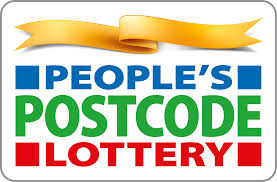Understanding the Postcode Lottery and Its Implications

Introduction to the Postcode Lottery
The term ‘postcode lottery’ refers to the disparities in access to essential services and resources depending on one’s geographic location, particularly in the UK. This phenomenon is increasingly relevant as discussions around social equity and healthcare access gain traction in the public sphere. Much like a lottery, where chance determines winners and losers, the postcode lottery highlights the inequalities faced by residents in different regions, especially in terms of healthcare, education, and social services.
The Reality of the Postcode Lottery
In healthcare, for instance, access to treatments and services can vary dramatically across different areas. A 2022 report by the NHS found that patients living in certain postcodes were significantly less likely to receive timely treatments for critical conditions such as cancer or heart disease. Consequently, this has led to calls for reforms to ensure that all individuals, regardless of their postcode, receive equitable healthcare.
Furthermore, the postcode lottery extends beyond healthcare. Education systems exhibit similar patterns, with funding for schools often determined by local taxes and government allocations. This has resulted in schools in wealthier areas receiving more resources compared to those in impoverished postcodes, creating a divide in the quality of education accessible to children across the UK.
Recent Developments and Reforms
In response to ongoing concerns, several initiatives have been proposed or implemented. For instance, the UK government has started reallocating funds to areas deemed underserved in terms of both health and educational resources. Additionally, charities and advocacy groups are campaigning for a more equitable distribution of resources to tackle these postcode disparities. In 2023, the Department of Health launched a pilot programme aimed at bridging the gap in medical services between affluent and underprivileged areas.
Conclusion and Future Outlook
The postcode lottery raises significant questions about fairness and equality in a modern society. As both public and private sectors engage in dialogue regarding potential solutions, the outcome will likely have lasting effects on social and healthcare systems. For residents, awareness of these disparities is crucial, as is advocating for change. If improvements are made, there is a hopeful outlook that future generations could witness a reduced postcode lottery, where access to essential services is determined more by needs than mere geography.








